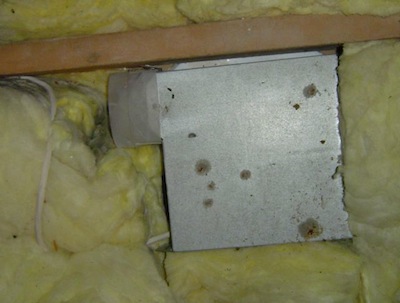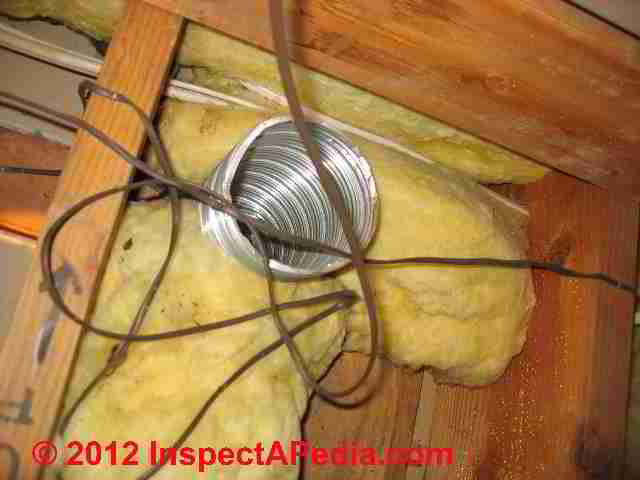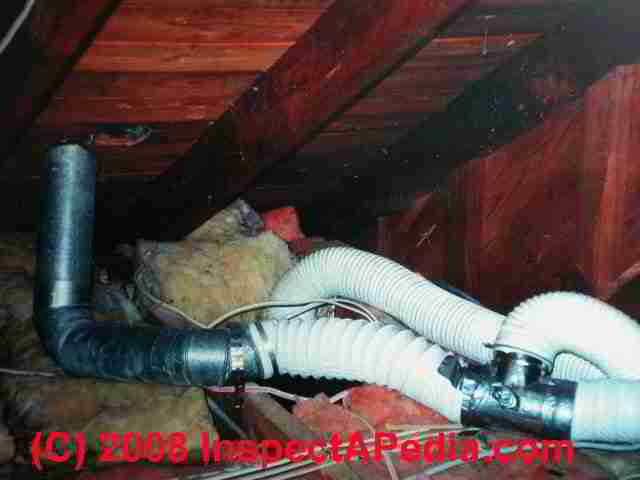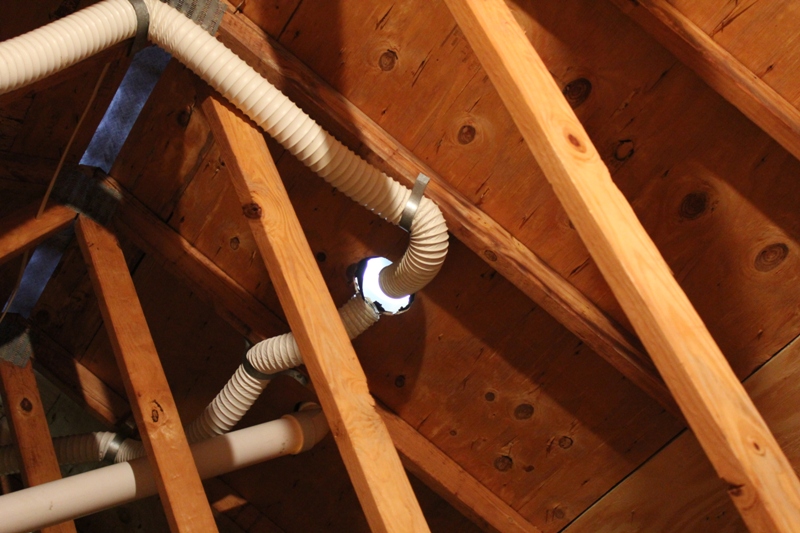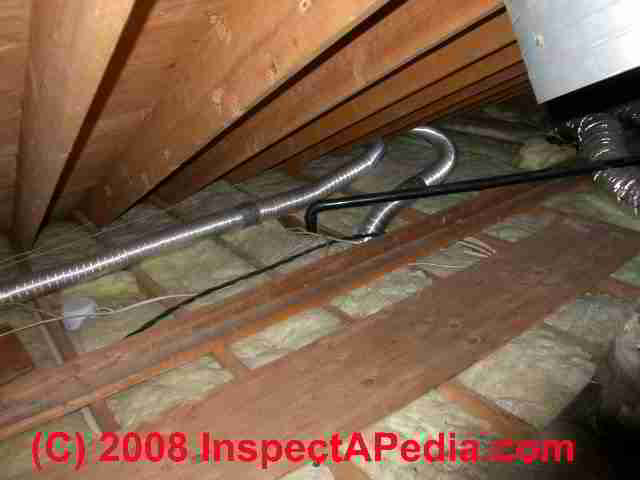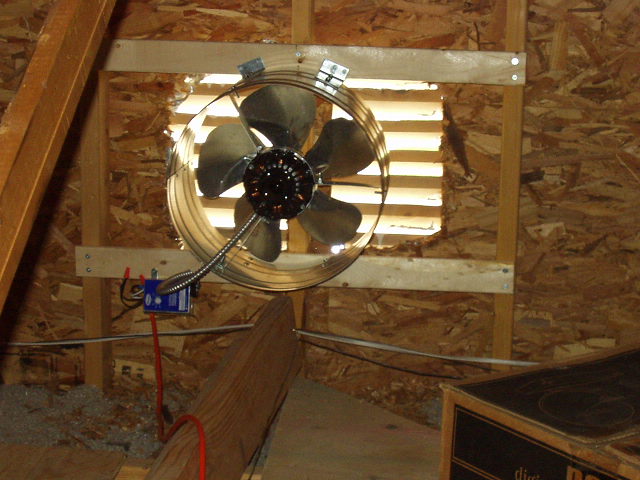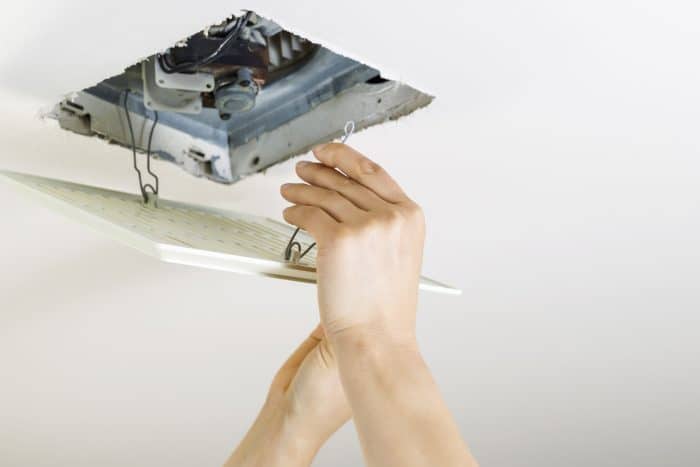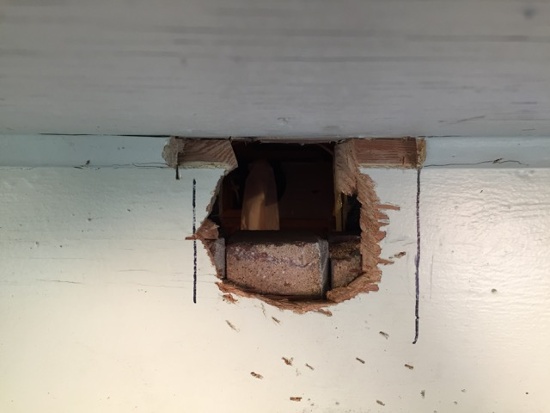Your attic is not a temperature controlled environment is never the same temperature as your living space and generally closer to the temperature outside.
Bathroom fan blowing into attic.
The science of creating the right atmosphere in your attic space did not really become a focus of homebuilders until the last 8 10 years.
If possible i d peek into the attic to make sure the vents are clear and working before cutting the hole and installing the vent.
Use the reference hole as a landmark to transfer your measurements from the attic to the ceiling.
Through the roof or an exterior gable wall.
Unfortunately we find far too many bath fans that exhaust the moist air into the attic.
Left unaddressed this almost always leads to serious problems.
Lee sam jun 9 17 at 0 03.
Your bathroom exhaust fan blows directly into your attic.
Options for venting a bathroom exhaust fan include best to worst.
This might be a factory included damper or one installed by the technician.
This is inaccurate and can lead to severe problems in your home.
This sends hot air up and out cooling your house and your attic.
Putting warm summer room air into the attic will not cause condensation because the attic ventilation should vent the area.
Condensation is caused when warm moist air reaches its dew point.
A powerful fan draws cooler early morning and evening air through open doors and windows and forces it up through the attic and out the roof vents.
Many assume that the fan vents outside through the roof which is the proper method.
As crazy as it sounds historically most homebuilders have installed that power bathroom exhaust fan in your second story bathroom failing to direct the warm moist air from your bathroom anywhere but in your attic.
Most homeowners that have a bath fan don t give a thought to where the moist air from the bathroom is exhausted.
Where does the moisture go.
You should never exhaust the bathroom fan directly into the attic.
Bathroom moisture can also lead to mold and mildew problems.
Use a layout square or framing square to draw the.
Every exhaust fan system should have a backdraft damper installed where the exhaust duct exits the roof or exterior wall.
Of clearance above the fan.
When venting a bathroom exhaust fan make sure to vent the air to the outside rather than into your attic where it can cause mold and mildew to form.
Mark the ceiling back in the bathroom measure the inside dimensions of the vent fan s intake port to determine what size hole you need.
These fans are commonly mounted in an upstairs stairwell or hallway ceiling where there s at least 3 ft.
This also applies to dryer exhaust.
You may have heard that it s okay to run your bathroom extractor fan into the attic or upper living space of your home.


